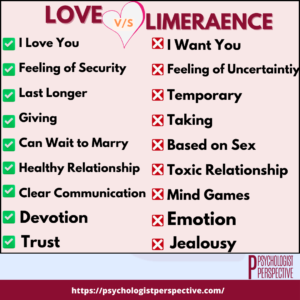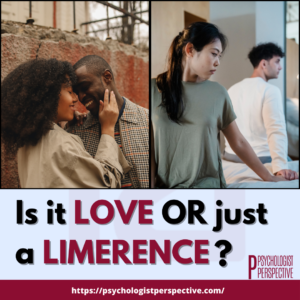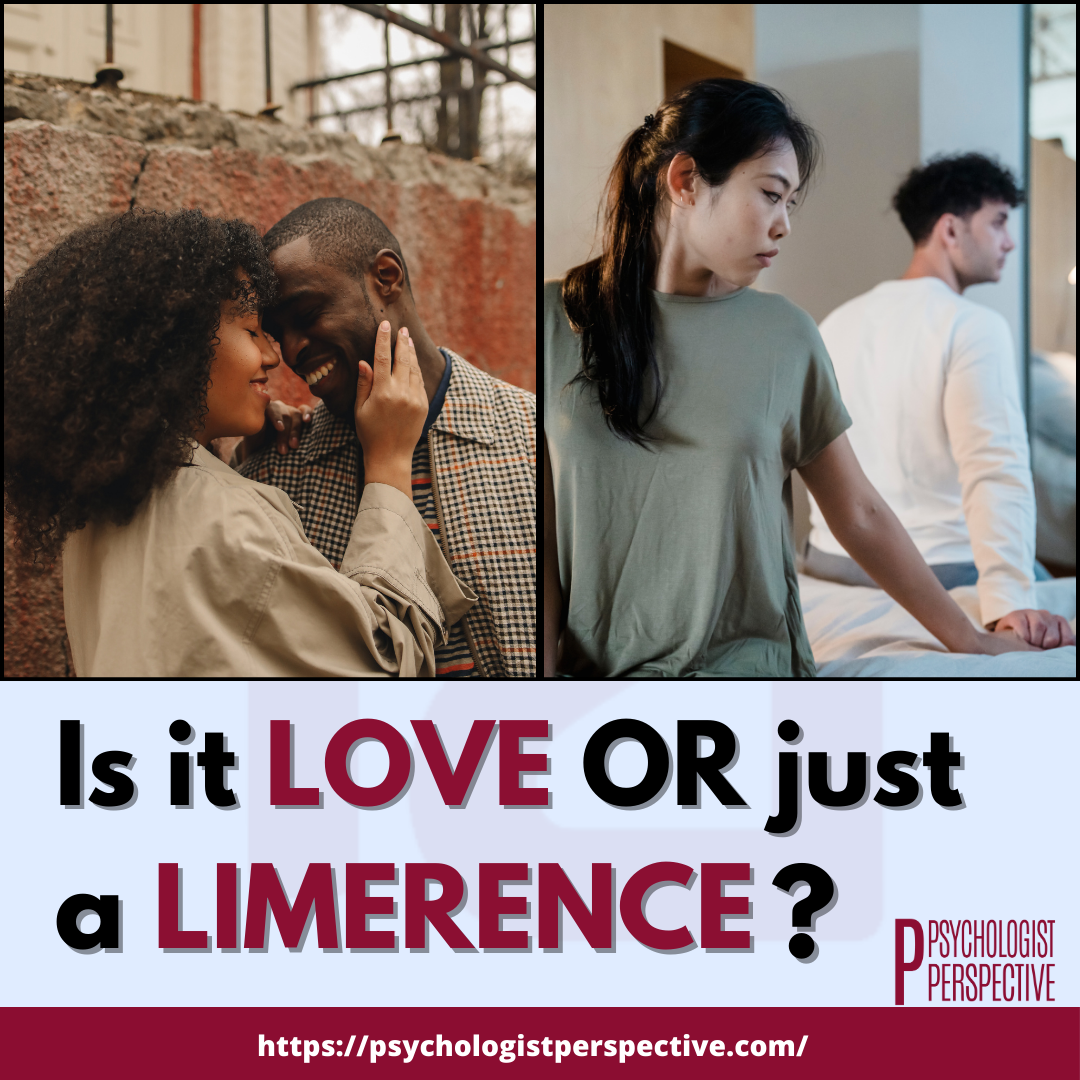Do you find yourself madly in LOVE with someone, unable to shake off persistent thoughts about them? You might be experiencing limerence, a state of intense romantic obsession. While it may seem similar to love, there are distinct differences between the Limerence and Love,
a term first coined by psychologist Dorothy Tennov, describes an intense state of infatuation or romantic obsession with another person. Unlike genuine love, which is characterized by mutual respect and emotional connection, limerence is often one-sided and focused solely on the object of affection e two.
It’s crucial to recognize the difference between limerence and genuine love.
Limerence is fleeting and one-sided,true love is built on mutual trust, respect, and emotional connection. If you suspect you’re experiencing limerence, consider seeking support from loved ones or a therapist. Understanding and addressing these feelings can help you cultivate healthier relationships and emotional well-being in the long run.

Certainly! Here are the key differences between love and limerence:
- Nature of Emotion:
– Love: Love is characterized by mutual respect, trust, and emotional connection between two individuals.
– Limerence: Limerence is an intense infatuation or obsession with another person, often one-sided and focused solely on the object of affection.
- Reciprocity:
– Love: Love involves mutual feelings and actions between both parties, with each person contributing to the relationship.
– Limerence: Limerence is typically one-sided, with the person experiencing it desperately seeking reciprocation from the object of their affection.
- Idealization:
– Love: In love, individuals accept their partner’s flaws and imperfections, recognizing them as part of who they are.
– Limerence: Those experiencing limerence often idealize thee person they’re infatuated with, ignoring or justifying any flaws they may have.
- Dependency:
– Love: Love enhances independence and autonomy within a relationship, with each partner supporting and complementing the other’s life.
– Limerence: Limerence can lead to emotional dependency, where the person’s mood and well-being become heavily reliant on the response and actions of the object of their affection.
- Duration:
– Love: Love tends to be enduring and stable, growing stronger over time as the relationship matures.
– Limerence: Limerence is often intense but short-lived, fading over time if the feelings are not reciprocated or if a more realistic perspective on the object of affection is gained.
Understanding these differences is crucial for navigating relationships and maintaining emotional well-being. While love fosters healthy connections and mutual growth, limerence can be emotionally draining and detrimental if not address
Is Limerence in a Relationship Healthy?
Limerence, though it may seem like a heightened form of love, isn’t conducive to healthy relationships. While experiencing intense emotions is a natural part of being human, unchecked limerence can bring about a slew of negative consequences.
Firstly, limerence has a tendency to consume your thoughts entirely, overshadowing other important aspects of your life. It becomes challenging to focus on work, hobbies, or even self-care when your mind is constantly preoccupied with thoughts of the object of your affection. This preoccupation can lead to emotional exhaustion and a sense of unfulfillment.
If you find yourself caught in the grips of limerence, it’s crucial to take proactive steps to address it:
Step 1: Recognize the Differenceeli
Educate yourself on the distinction between limerence and genuine love. Remind yourself that while limerence may feel intense, it lacks the depth and reciprocity of true love. Understanding this difference is the first step towards regaining emotional balance.
Step 2: Seek Support
Don’t hesitate to reach out to trusted friends, family members, or a therapist for support. Sharing yourlove vs limerance ngs with others can provide perspective and alleviate the burden of carrying them alone. Therapists, in particular, can offer guidance and strategies for managing limerence in a healthy way.
Step 3: Explore Healthy Coping Mechanisms
Instead of allowing limerence to consume you, focus on finding healthier ways to cope. Engage in activities that bring you joy and fulfillment, whether it’s pursuing a hobby, spending time with loved ones, or practicing self-care. By nurturing other aspects of your life, you can create a more balanced emotional existence.
In conclusion, while limerence may initially feel like love, it’s essential to recognize it for what it is and take proactive steps to address it. Genuine love is built on mutual respect, trust, and emotional connection, and nurturing those qualities is essential for cultivating lasting, fulfilling relationships.



